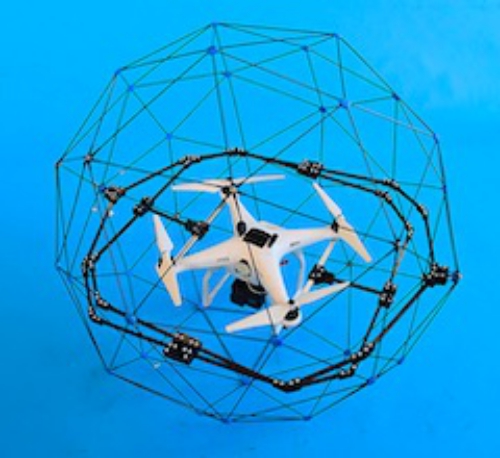Mitsubishi Hitachi Power Systems, Ltd. (MHPS) is putting into practical service unmanned aerial vehicles (UAVs) to more easily and efficiently inspect the interiors of power plant boilers and other large indoor structures. Demonstration testing for manually operated drones was completed last year, and MHPS plans to begin offering the inspection service from April 2019.
MHPS is also pursuing development of autonomous UAVs, together with research and development firm A.L.I. Technologies Inc. Basic technology verification tests were conducted using a prototype device, and were completed last year. MHPS’ production of the device and practical application is planned for fiscal 2020. The aim is to facilitate shorter downtimes of facilities, longer periods between regular inspections, and a quick and appropriate response to emergencies.
Manually operated UAVs used to inspect the inside of power plant boilers and other structures, will utilize MHPS’ collision and environment resistant technologies, and have been under development since fiscal 2016. The test demonstration in December of 2018 was conducted with the support of Mitsubishi Heavy Industry’s Research & Innovation Center, and the use of actual test facilities and boilers.
Autonomous UAVs purposed for inspections, have been jointly developed by MHPS and A.L.I. Technologies since fiscal 2017, using multiple test boilers and mockups of actual boiler environments. Basic technology verification tests conducted in September of 2018 confirmed the capability for autonomous flight without using GPS or other satellite positioning systems. The practical application of UAVs using satellite positioning systems is already well advanced, but operational technologies in special environments, such as the inside of boilers, have yet to be established, making practical application a breakthrough technology. A.L.I. Technologies’ business scope consists predominantly of drone-related applications and edge computing technologies.
MHPS, by developing drone-enabled power plant inspection technologies and providing advanced after-sales services for power generation facilities, will further enhance stable energy supplies and contribute to global economic development, while lessening the environmental load.
Source: Press Release

